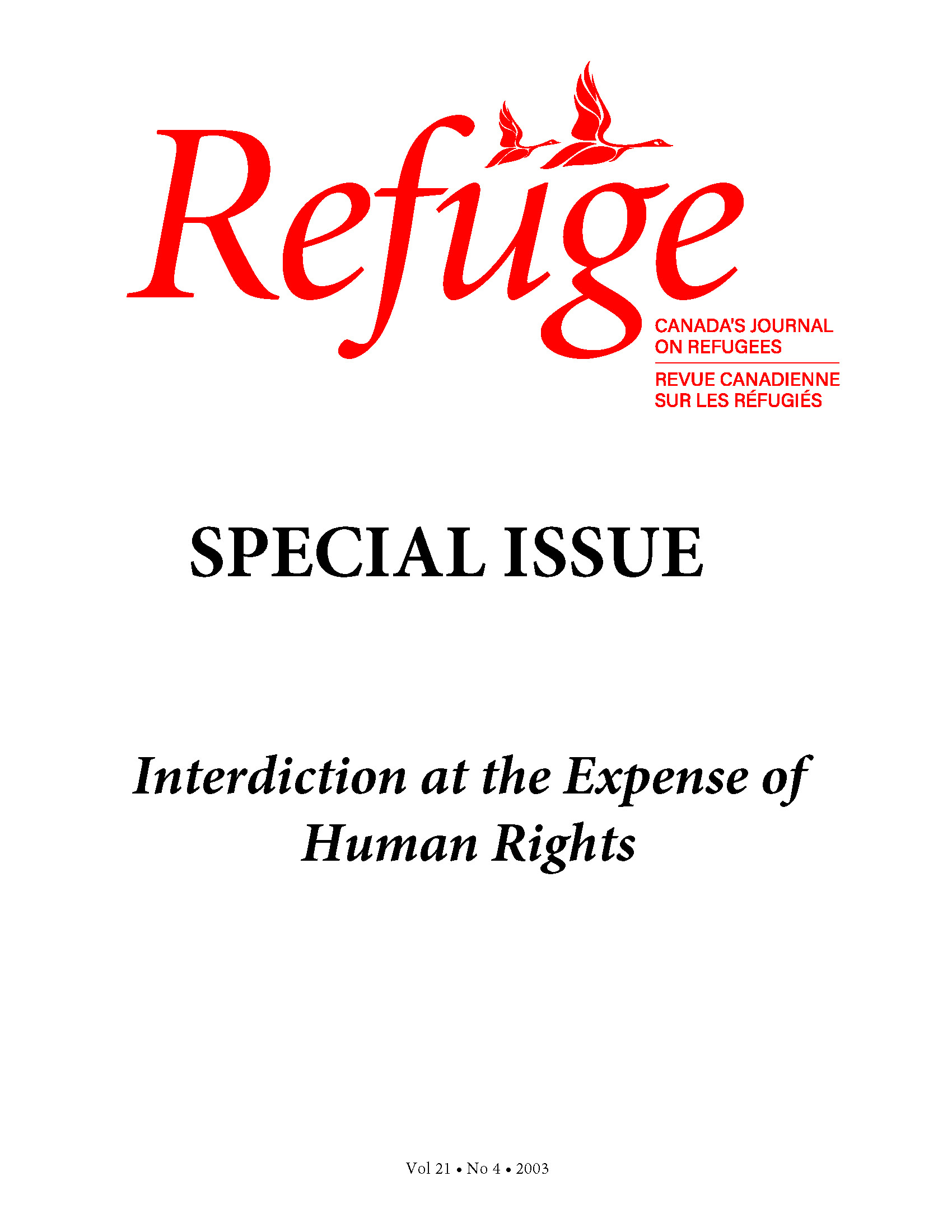Interception and Asylum: When Migration Control and Human Rights Collide
DOI:
https://doi.org/10.25071/1920-7336.21305Keywords:
interception, irregular migration, asylum, refugee protection, law, human rightsAbstract
Preoccupied with sovereign control of access to their territories, states are devoting increasing energy and resources to intercepting and turning back migrants before they arrive at their borders. Interception measures, however, rarely include adequate procedures to distinguish those who need protection from those who do not. As a result, desperate people are left with no option but to resort to ever more dangerous and disruptive methods of migration. This article surveys the main types of interception measures and their effects, and examines the international refugee and human rights law issues raised by these practices. It then reviews recent developments at the level of UNHCR’s Executive Committee with regard to interception and concludes with some suggestions for building compliance with principles of refugee protection in the context of interception measures.Metrics
Downloads
Published
How to Cite
Issue
Section
License
Copyright (c) 2003 Andrew Brouwer, Judith Kumin

This work is licensed under a Creative Commons Attribution-NonCommercial 4.0 International License.
Refuge authors retain the copyright over their work, and license it to the general public under the Creative Commons Attribution-Non Commercial License International (CC BY-NC 4.0). This license allows for non-commercial use, reproduction and adaption of the material in any medium or format, with proper attribution. For general information on Creative Commons licences, visit the Creative Commons site. For the CC BY-NC 4.0 license, review the human readable summary.








